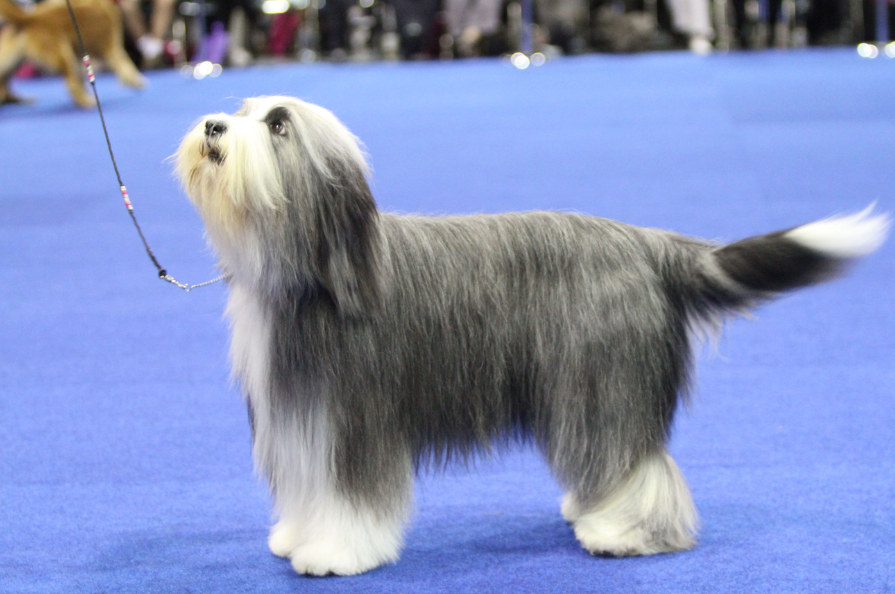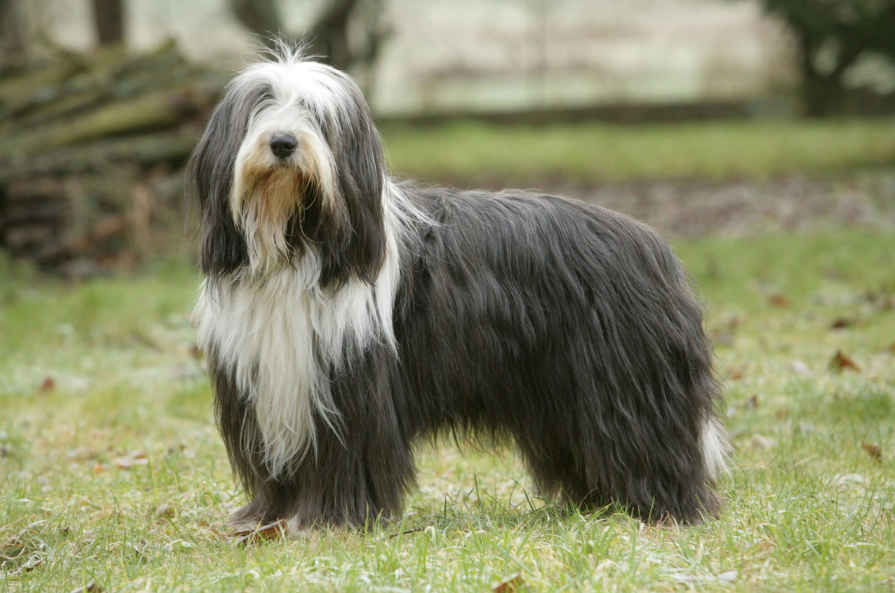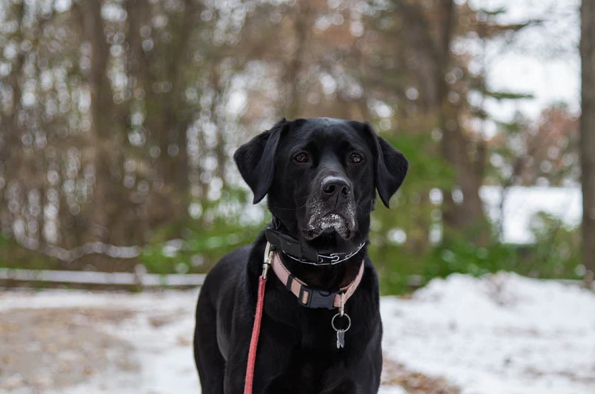Bearded Collie
The Bearded Collie, often referred to as the “Beardie,” is a medium-sized to large-sized herding breed that is known for its shaggy coat as well as its cheerful temperament. These are the most important traits associated with Bearded Collie: Bearded Collie:
Appearance:
- Bearded Collie Bearded Collie is a sturdy and athletic dog that has an elongated, slim body.
- They sport a distinct double coat, which is comprised of an undercoat that is soft and furry and a straight or wavy, outer coat.
- The coat colors are a bit different and can include shades of black, blue brown, and fawn usually with white markings.
Beard:
- Like the name implies, this breed is known for their distinct “beard” of hair on their muzzles.
- They also have a longer hair around their ear, which gives them a beautiful and attractive appearance.
Size:
- Bearded Collies are typically medium to large-sized dogs.
- Males of adulthood typically measure between 21 and 22 inches (53 to 56 centimeters) on the shoulder. Females tend to be a little smaller.
Temperament:
- Bearded Collies are well-known for their affectionate and outgoing nature.
- They are playful, intelligent and affectionate, making them excellent family companions.
- Because of their background as herders it is possible that they display the natural urge to herd. This includes the circling and chasing behaviors.
Exercise Needs:
- This breed is energetic and requires regular workouts to keep them mentally and physically engaged.
- Playtime, daily walks, and the chance to run in a safe place are crucial to their overall health.
Training:
- Bearded Collies are smart and always eager to please, which makes them generally friendly to training.
- Socialization at an early age and obedience training is essential to warrant that they will become confident adults.
Grooming:
- The long, thick coats of Bearded Collie requires regular grooming to avoid matting and getting caught in.
- Regularly brushing, particularly in areas that are prone for matt (such such as the behind of ear) is crucial.
Health:
- As with the other breeds of dogs, Bearded Collies can be vulnerable to certain health problems such as hip dysplasia, and eye problems.
- Regular vet check-ups as well as a balanced diet are essential to maintain their overall health.
Bearded Collie Health and Feeding
Health:
Bearded Collies are generally a healthy breed, however, like any dog, they may be susceptible to some health issues. It’s crucial for pet owners to be aware of any health issues that could be a concern as well as to deliver regular check-ups with their veterinarian. Common health issues that apply to Bearded Collies include:
Hip Dysplasia A hereditary disorder in which the hip joint isn’t able to sit in the hip socket correctly, which could lead to arthritis. Regular exercise and a healthy weight will benefit to manage this issue.
Progressive Retinal Atrophy (PRA): A collection of genetic diseases which cause degeneration of the retina, and eventually, blindness. Good breeding practices are designed to lower the incidence of PRA.
Hypothyroidism The condition in which the thyroid gland isn’t producing suitable thyroid hormone. This could cause weight gain or lethargy as well as other health problems.
Ear Infections Bearded Collies with long, floppy ears could be more susceptible to Ear infections. Regularly cleaning and examination could benefit to prevent problems.
Allergic reactions: Certain Bearded Collies could be prone to allergies. These may result in itchy skin or digestive issues.
eye conditions: Other than PRA Bearded Collies might be at risk of other eye problems. Eye examinations on a regular basis are recommended.
Regular check-ups with a veterinarian as well as a balanced diet, regular exercise and attention to grooming requirements can improve general health as well as wellbeing of the Bearded Collie.

Feeding:
A feeding plan that gives an Bearded Collie a well-balanced and nutritious diet is vital to their longevity and health. Below are some guidelines for general consumption to follow:
Good Dog Food Pick a commercially-produced dog food of high quality suitable to the bearded collie’s size, age and level of activity. Choose a brand with meat listed as the main ingredient.
Limiting Portion Size: Be mindful of portions sizes to avoid obesity, which may contribute to a variety of health issues. Your vet will focus on providing advice on the appropriate amount of food to feed your dog’s specific needs.
Meal The frequency of meals: Adult Bearded Collies generally eat twice per day. Puppies may require more frequent meals.
Avoid human foods: Some human foods are toxic for dogs. Beware of feeding to your Bearded Collie chocolate, caffeine garlic, onions and other food items that could harm your dog.
Clean Water Make sure to offer additional the Bearded Collie with access pure, clean water.
Special Dietary Requirements Some bearded Collies might have special diet requirements due to sensitivities or allergies. Contact your veterinarian in case you suspect that your pet is suffering from food-related issues.
Bearded Collie Care and Grooming
Bearded Collies are distinguished by their long shaggy coat, which requires regular care and grooming in order to keep their coats looking and feeling at their perfect. Here are some tips for caring and grooming suggestions to help Bearded Collies:
Brushing:
- The coat of a Bearded Collie needs regular brushing to avoid matting and the tangling. Regular brushing is beneficial particularly in areas susceptible to matting such as between the ears and under the tail.
- Utilize a slicker brush, or a comb that has narrow and wide teeth to go through the various coat layers.
Bathing:
- Bearded Collies don’t require regular bathing unless they are particularly filthy. The coat can be stripped from its oils.
- Make use of a pet-specific shampoo and ensure that you thoroughly wash your hair to avoid irritation to the skin.
Trimming:
- Cut the hair around the ears, paws and the tail for keeping the Bearded Collie looking neat.
- Some dog owners decide to trim hair around the face, particularly if it blocks the dog’s ability to see.
Ear Care:
- Be sure to check the ears often to look for signs of infection, or buildup of wax. Make sure to clean them with an earbud cleanser If necessary.
- Bearded Collies are susceptible to ear infections, therefore taking care to keep your ears clean is crucial.

Dental Care:
- Make sure you clean the Bearded Collie’s teeth frequently to avoid dental problems.
- Offer chewing gum or games for children to benefit to keep your child’s teeth in good condition.
Nail Trimming:
- Cut the dog’s nails frequently to stop them from growing too much which could be uncomfortable for your dog and could cause problems in gait and posture.
Exercise:
- Bearded Collies are an active breed that needs regular exercise. Regular walks, playtime and the chance to exercise in a safe space are essential for their mental and physical health.
Training and Socialization:
- Bearded Collies are smart and gain from education and socialization starting at an early age.
- Positive reinforcement is a great method and early training can assure an obedient and well-adjusted adult dog.
Veterinary Care:
- Make sure you schedule regular vet check-ups to check the general well-being of your Bearded Collie.
- Be up-to-date about vaccinations, tick and flea prevention, and other treatment steps.
FAQs
1. What is the story behind this breed? Bearded Collie?
- Bearded Collies have Scottish origins and were used for centuries for herding throughout the Scottish Highlands. They are likely to have evolved from the herding dogs introduced to Scotland from Central European immigrants.
2. What size do Bearded Collies usually become?
- Males who are adults Bearded Collies typically stand between 21 and 22 inches (53 to 56 centimeters) on the shoulder. Females tend to be a bit smaller.
3. What’s what is the Bearded Collie’s temperament?
- Bearded Collies are loved for their warm and sociable nature. They are smart, playful and loving. They usually get along with pets and children.
4. Are Bearded Collies shed a lot?
- Absolutely, Bearded Collies have a double coat that sheds particularly during seasons of change. A regular grooming routine and brushing could benefit reduce shedding and avoid matting.
5. What amount of exercise do bearded Collies require?
- Bearded Collies are an active breed that needs regular exercise. Everyday walks, playtime and the chance to exercise in a safe space are essential for their mental and physical health.
6. Do Bearded Collies good with children?
- It is true that Bearded Collies are generally well-behaved with children. They are renowned for their affectionate and gentle nature. But, like any breed of dog, vigilance is essential, particularly with young children.
7. Are Bearded Collies require enough grooming?
- Absolutely, Bearded Collies have a long shaggy coat that needs regular grooming. Regular brushing is recommended to avoid matting. periodic trimming is sometimes necessary to keep them in a neat state.
8. Do Bearded Collies easy to train?
- Sure, Bearded Collies are intelligent and enthusiastic about pleasing and are therefore generally adept to training. Socialization early and positive reinforcement methods are a great fit for this breed.
9. What health conditions are common with Bearded Collies?
- Bearded Collies are susceptible to health problems such as hip dysplasia, the progressive retinal atrophy (PRA) as well as hypothyroidism, allergies, and ear infections. Regular vet check-ups are crucial for assessing their health.
10. Can Bearded Collies make good family pets?
- Absolutely, Bearded Collies can make great pets for families. They are renowned for their affectionate and friendly temperament, and frequently create solid bonds with family members of their own. They do need some time and attention, which includes regular grooming and exercise.






